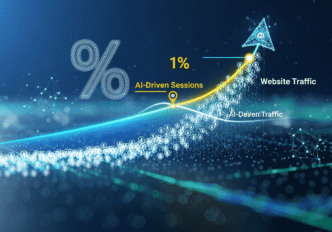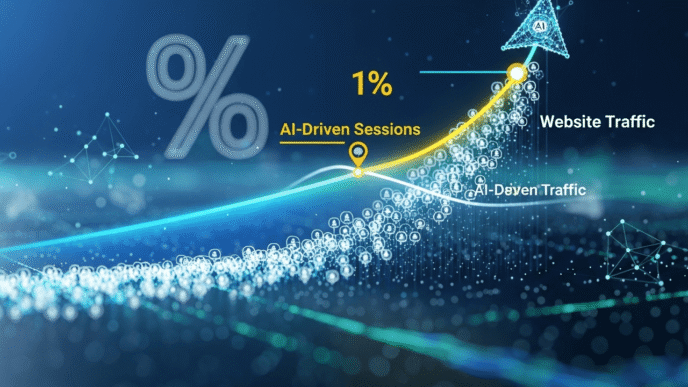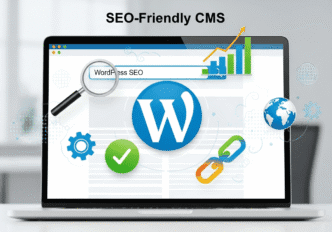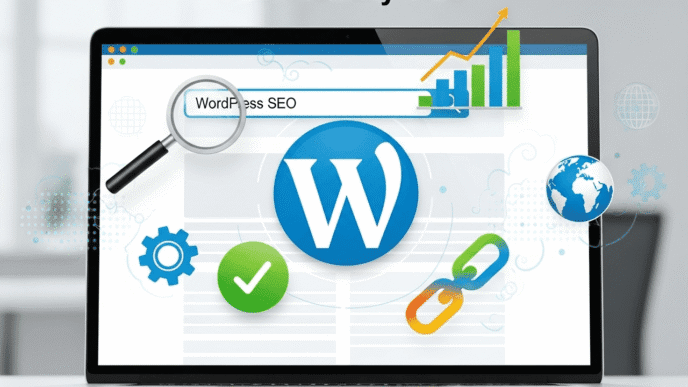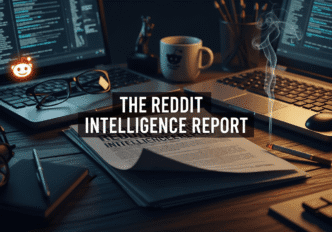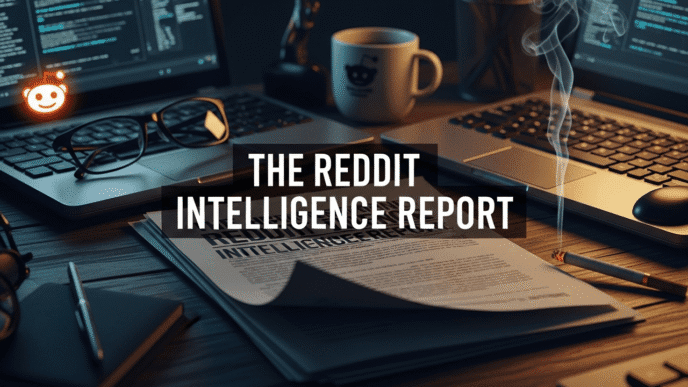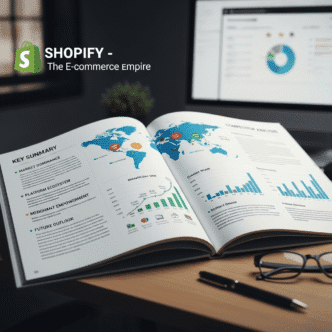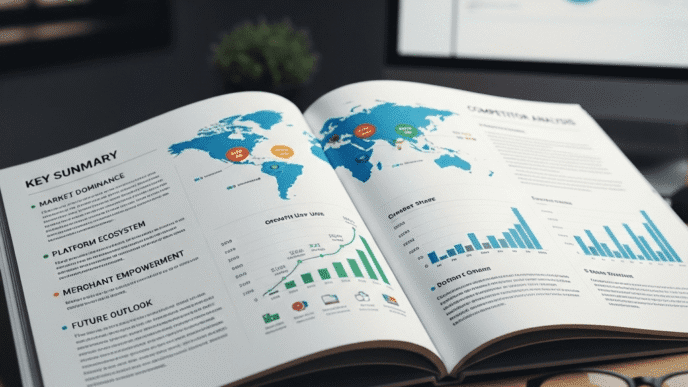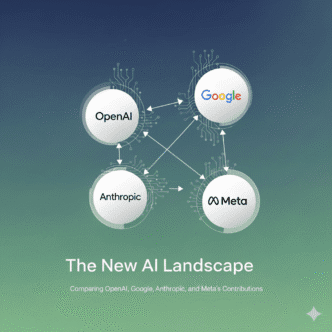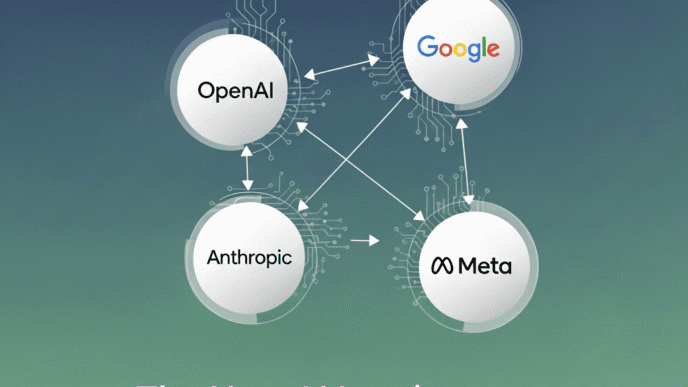Executive Summary: High-Consultative Industries Dominate AI-Driven Search as Users Seek Expert Guidance Through Conversational Interfaces
Report Date: August 16, 2025 Classification: Strategic Market Intelligence Distribution: C-Suite, Marketing Leadership, Digital Strategy Teams
Table of Contents
Toggle
Executive Summary
The digital marketing landscape is experiencing a seismic shift as artificial intelligence fundamentally alters how consumers discover and interact with businesses. Legal and finance sectors have emerged as the primary beneficiaries of this transformation, capturing 55% of all AI-driven referral traffic alongside health, SMB, and insurance industries. This concentration represents the most significant disruption to search-driven marketing since the advent of Google AdWords, with profound implications for customer acquisition strategies across high-consultative sectors.
Key Findings:
- Legal, Finance, Health, SMB, and Insurance collectively account for 55% of all LLM-sourced sessions
- AI discovery traffic has surged 527% year-over-year in the first five months of 2025
- Finance websites receive the highest ratio of AI referral traffic from ChatGPT among all industries
- Users are asking contextual, trust-heavy, consultative questions that drive higher-value traffic
- Some SaaS sites are already seeing over 1% of total traffic initiated by AI results
Market Size and Growth Trajectory
The AI Referral Revolution: By the Numbers
The transformation is both rapid and substantial. AI platforms generated over 1.13 billion referrals to the top 1,000 websites globally in June 2025, representing a 357% year-over-year increase. While Google Search still dominates with 191 billion referrals during the same period, the velocity of AI growth suggests a fundamental shift in information discovery patterns.
Traffic Growth Indicators:
- 527% increase in AI discovery traffic comparing first 5 months of 2025 vs. 2024
- 123% growth in referral traffic from generative AI between September 2024 and February 2025
- 1,200% increase in traffic to U.S. retail websites from generative AI sources (February 2025 vs. July 2024)
- 1,700% surge in traffic to travel, leisure, and hospitality sites from generative AI sources
Platform Distribution and Market Share
ChatGPT maintains dominant market position, accounting for more than 80% of AI referrals to top 1,000 domains globally. However, the competitive landscape is diversifying:
AI Platform Performance Comparison: Strategic Analysis
Understanding platform-specific characteristics is crucial for developing effective AI referral strategies across legal and finance sectors.
| Platform | Legal Sector Performance | Finance Sector Performance | Key Differentiators | Strategic Priority |
|---|---|---|---|---|
| ChatGPT | Dominant market leader | Highest referral ratios | Conversational interface, growing citations | Primary Focus |
| Perplexity | Strong performance (0.041% traffic) | Significant presence (0.073% traffic) | Real-time web integration, research-focused | Secondary Priority |
| Copilot | Second-largest contributor (0.076%) | Major presence (0.036%) | Enterprise integration, professional workflows | Enterprise Focus |
| Gemini | Emerging presence | Moderate growth (0.035% SMB) | Google ecosystem, infrastructure advantages | Growth Opportunity |
| Claude | Marginal but consistent | Limited presence (<0.001%) | Technical content focus, accuracy emphasis | Niche Applications |
Platform-Specific Strategic Implications
ChatGPT Optimization Priority:
- Focus primary content optimization efforts here due to 80%+ market dominance
- Invest in conversational content formats that align with ChatGPT’s interface
- Develop citation-worthy authoritative content for maximum visibility
- Monitor ChatGPT’s evolving search integration features
Perplexity Secondary Strategy:
- Leverage real-time information integration capabilities
- Create research-focused content that benefits from Perplexity’s web search integration
- Optimize for complex, multi-faceted queries that require current information
- Focus on industries where Perplexity shows strong performance (health, e-commerce crossover)
Copilot Enterprise Approach:
- Target professional workflows and enterprise decision-making processes
- Create content that integrates well with Microsoft ecosystem tools
- Focus on B2B legal and financial service scenarios
- Leverage Copilot’s strength in professional services environments
Industry Analysis: The Consultative Advantage
Why Legal and Finance Lead the AI Revolution
The dominance of legal and finance sectors in AI referral traffic reflects fundamental changes in how consumers approach complex decision-making. These industries benefit from AI’s strength in handling contextual, trust-heavy queries that traditional search engines struggle to address effectively.
Consumer Behavior Patterns: Users are asking sophisticated questions like:
- “What should I ask a lawyer before signing this contract?”
- “How do I structure payroll as a small business owner with 5 employees?”
- “What are the tax implications of this investment strategy?”
This represents a shift from keyword-based searching to conversational, consultative discovery that mirrors the decision-making process for high-stakes financial and legal matters.
Legal Industry Performance Metrics
The legal sector demonstrates exceptional alignment with AI search patterns, driven by the complexity of legal information and users’ need for accessible explanations of complicated concepts.
Key Performance Indicators:
- Legal sites show strong performance across ChatGPT, Perplexity, and Copilot platforms
- Copilot captures 0.076% of legal traffic, second only to ChatGPT
- Users demonstrate longer engagement times when arriving from AI platforms
- Higher conversion rates for consultation requests and service inquiries
Growth Drivers:
- Increasing complexity of legal regulations and compliance requirements
- Growing demand for accessible legal information among SMBs
- Rise of legal tech adoption creating more sophisticated online legal resources
- AI’s ability to translate complex legal concepts into understandable language
Finance Sector Dominance
Financial services demonstrate the strongest AI referral activity, with finance websites receiving the highest ratio of AI referral traffic from ChatGPT among all industries analyzed.
Market Performance Data:
- Finance leads all industries in ChatGPT referral traffic ratio
- Perplexity contributes 0.073% of finance traffic, showing strong secondary platform performance
- 45% higher time-per-visit for AI-referred users compared to traditional search traffic
- 23% higher likelihood of starting banking applications among AI-referred users
Consumer Adoption Patterns:
- 27% of consumers use generative AI for financial needs (led by Gen Z at 34% and Millennials at 35%)
- 49% trust generative AI financial advice completely without third-party verification
- 44% trust AI advice but seek expert verification
- 42% use AI for checking/savings account recommendations
Competitive Intelligence: Platform-Specific Strategies
Expert Opinion and Industry Leadership Perspectives
The transformation of legal and finance sectors through AI referral traffic has generated significant commentary from industry leaders and market analysts. These perspectives provide crucial context for strategic decision-making.
Technology Industry Leadership
“People aren’t using LLMs like search engines. They’re asking contextual, trust-heavy, consultative questions. The kind they’d normally ask a real expert: ‘What should I ask a lawyer before signing this contract?’ or ‘How do I structure payroll as a small business owner?'”
— David Bell, Co-founder of Previsible
This insight explains why legal and finance sectors dominate AI referral traffic. The conversational nature of AI platforms aligns perfectly with the consultative decision-making process inherent in professional services.
“If you’re still treating LLMs like a 2026 conversation, you’re already behind. You can’t just optimize for one model. Visibility across platforms will matter more over time.”
— Search Engine Land Analysis Team
Financial Services Industry Insights
“Simply put, AI is helping a growing portion of the population make financial decisions. As AI capabilities evolve, its role in banking is expected to expand further, influencing industry-wide innovation and consumer expectations for financial management.”
— Adobe Digital Insights Team
The financial services sector’s early adoption advantage is creating lasting competitive differentiation, according to industry research.
“Generative AI is fostering a research-oriented, high-value consumer base, leading to lower bounce rates, longer visit durations, and deeper platform interactions.”
— Adobe Business Intelligence Report
Legal Technology Perspectives
Industry experts emphasize the unique positioning of legal services in the AI referral ecosystem:
“The legal industry’s strong AI referral performance reflects structural changes in how consumers approach legal information discovery and professional service selection. Users demonstrate longer engagement cycles suggesting thorough research behavior.”
— Legal Technology Market Analysis
Digital Marketing Evolution Commentary
“We are at the beginning of what is likely to be a major change, and getting an edge on the competition early can be a massive advantage for brands. Appearing in generative AI responses is becoming a prerequisite to being in a consumer’s consideration set.”
— Abigail Winchell, Adobe Digital Insights Team
This perspective underscores the strategic imperative for immediate action in AI optimization strategies.
Competitive Intelligence Insights
Market analysts highlight the concentration effect:
“High-consultative industries are leading: Legal, Finance, SMB, Insurance, and Health make up 55% of all LLM-driven sessions, showing that users turn to AI for complex, contextual questions.”
— 2025 Previsible AI Traffic Report
Industry transformation commentary:
“ChatGPT consistently drives the most AI referral traffic across all industries. However, as AI referral traffic continues to grow, other platforms like Perplexity and Gemini are also contributing meaningfully.”
— Search Engine Land SMB Analysis
Consumer Adoption Expert Analysis
Demographic and behavioral experts provide crucial insights:
“Higher-income Millennials — those earning $70,000 or more — are the primary adopters, with over 50% engagement in AI-assisted shopping. Baby Boomers have demonstrated rapid adoption growth (up 63% from September 2024 to February 2025).”
— Adobe Consumer Research Team
This demographic data explains why legal and finance sectors see such strong AI referral performance, as these industries naturally serve higher-income demographics.
Trust and verification patterns:
“Nearly half of users (49%) report trusting generative AI financial advice completely, without any third-party information. Another 44% trust the advice but seek out expert verification.”
— Adobe Financial Services Survey
Strategic Implementation Commentary
Digital transformation experts emphasize urgency:
“SEO is splitting and speeding up: It’s no longer just about ranking in Google. You now need to earn visibility in AI assistants, summaries, and conversational UIs, and they prefer content that’s structured, clear, and genuinely helpful.”
— Previsible AI Strategy Report
Investment prioritization guidance:
“Some sites, especially in SaaS, are seeing over 1% of all traffic initiated by AI results. Primarily to the bottom of funnel users and targeted prospects.”
— AI Traffic Analysis Report
Key Industry Analyst Predictions
Market evolution forecasts:
“As tricks to be included in answers emerge, generative engine optimization (GEO) may become the new search engine optimization. We are at the beginning of what is likely to be a major change.”
— Adobe Digital Insights Strategic Forecast
Competitive landscape analysis:
“Far beyond automation, AI is redefining consumer engagement by enabling more intuitive, personalized, and seamlessly integrated digital experiences. Brands must closely track traffic from AI referrals and understand how consumers are behaving.”
— Adobe Business Strategy Team
Consumer Behavior and Decision-Making Patterns
The Trust and Verification Paradigm
AI referral traffic represents a fundamentally different user journey compared to traditional search. Users arriving via AI platforms demonstrate higher engagement, longer session times, and greater conversion intent.
Behavioral Characteristics:
- 45% lower bounce rates for consumers from generative AI sources (travel sector)
- 45% more time browsing on banking sites for AI-referred visitors
- 86% desktop usage for AI referral traffic vs. 34% overall e-commerce desktop share
- Higher conversion rates in electronics and jewelry categories
Demographics and Adoption Patterns
Age-Based Usage Patterns:
- Gen Z (18-24): 55% generative AI internet penetration
- Millennials (25-34): 55.2% adoption rate, 46% for AI-assisted shopping
- Higher-income Millennials ($70k+): Over 50% engagement in AI-assisted shopping
- Baby Boomers: 63% adoption growth from September 2024 to February 2025
Income Correlation:
- Higher-income demographics show stronger adoption across all categories
- Premium services and complex financial products see higher AI referral quality
- Professional services demonstrate strongest correlation with high-value customers
Industry-Specific Deep Dive Analysis
Legal Services Market Dynamics
The legal industry’s strong AI referral performance reflects structural changes in how consumers approach legal information discovery and professional service selection.
Market Drivers:
- Increasing regulatory complexity across industries
- Growing demand for accessible legal guidance among SMBs
- Rise of legal tech platforms creating more sophisticated online resources
- Consumer preference for understanding legal concepts before professional engagement
Opportunity Assessment:
- High-value consultation requests from AI-referred traffic
- Longer engagement cycles suggesting thorough research behavior
- Strong performance across multiple AI platforms providing diversification opportunities
- Growing market for educational legal content
Financial Services Transformation
Financial services lead AI referral traffic due to the industry’s natural alignment with consultative, high-trust decision-making processes that AI platforms excel at facilitating.
Market Forces:
- Increasing complexity of financial products and regulations
- Growing DIY investment and financial planning trends
- Rising demand for personalized financial advice
- Shift toward digital-first financial service discovery
Strategic Implications:
- Highest referral ratios indicate strong market positioning opportunity
- Multiple platform presence suggests diversified acquisition strategies needed
- Higher engagement metrics justify premium content investment
- Growing trust in AI financial advice creates new service delivery opportunities
Technology and Platform Evolution
The Multi-Model Landscape
The AI referral ecosystem is rapidly evolving beyond ChatGPT’s initial dominance, creating opportunities and challenges for businesses across legal and finance sectors.
Platform Diversification Trends:
- Growing importance of multi-platform AI optimization strategies
- Different models favoring different content formats and sources
- Increasing need for platform-specific content strategies
- Rising importance of citation and linking strategies across platforms
Technical Considerations:
- Structured data becoming crucial for AI platform visibility
- Clear, authoritative content formats preferred by AI systems
- Real-time information integration growing in importance
- Mobile-optimized AI interactions increasing rapidly
Competitive Landscape and Strategic Positioning
Market Entry Barriers and Opportunities
The concentration of AI referral traffic in high-consultative industries creates both opportunities and challenges for market participants.
Competitive Advantages:
- First-mover advantages in AI optimization strategies
- Authority and expertise-based content performing better
- Trust signals becoming more important for AI platform selection
- Multi-platform presence providing competitive differentiation
Market Threats:
- Increasing competition for AI platform visibility
- Platform algorithm changes affecting referral patterns
- Growing sophistication of AI optimization techniques
- Potential platform consolidation affecting distribution
Strategic Recommendations and Action Items
Essential Tips for Legal Services Organizations
Immediate Implementation Strategies (0-3 months):
1. Audit and Optimize AI Visibility
- Conduct comprehensive analysis of current presence across ChatGPT, Perplexity, and Copilot
- Test how your firm appears in AI responses for key legal queries
- Document current citation patterns and identify optimization opportunities
- Establish baseline metrics for AI referral tracking
2. Create Conversational Content Architecture
- Develop FAQ-style content that directly answers client questions
- Structure information using clear headings and bullet points that AI can easily parse
- Focus on “How to,” “What is,” and “When should” question formats
- Implement schema markup to enhance AI platform understanding
3. Build Multi-Platform Content Strategy
- Ensure content accessibility across all major AI platforms
- Create platform-specific optimization approaches
- Develop citation-worthy authoritative content
- Establish consistent expert positioning across platforms
4. Establish AI-Specific Analytics Framework
- Implement UTM tracking for AI platform referrals
- Set up conversion funnels specific to AI-referred traffic
- Monitor engagement patterns unique to AI users
- Track consultation request rates from different AI platforms
Essential Tips for Financial Services Providers
Immediate Action Framework (0-3 months):
1. Leverage Market Leadership Position
- Capitalize on finance sector’s dominance in AI referral traffic
- Enhance existing content with AI-optimized structures
- Prioritize educational content over promotional material
- Focus on trust-building elements that AI platforms favor
2. Implement Comprehensive Multi-Platform Strategy
- Ensure optimal visibility across ChatGPT (highest referral ratios)
- Develop Perplexity-specific content for research-heavy queries
- Optimize for Copilot’s enterprise-focused audience
- Create Gemini-compatible content for emerging opportunities
3. Enhance Authority and Trust Signals
- Prominently display expert credentials and certifications
- Include author bio information with relevant expertise
- Add clear disclaimers and compliance information
- Implement structured data for professional qualifications
4. Optimize for High-Intent Traffic Conversion
- Adapt landing pages for 45% longer session times from AI referrals
- Create specialized conversion paths for consultation requests
- Implement progressive disclosure for complex financial topics
- Develop retargeting strategies for AI-referred high-value prospects
Medium-Term Strategy (3-12 months):
- Educational Content Expansion: Develop comprehensive financial education resources
- Personalization Integration: Create AI-compatible personalized financial guidance content
- Mobile AI Optimization: Prepare for growing mobile AI interaction trends
- Partnership Opportunities: Explore direct partnerships with AI platforms for enhanced visibility
Cross-Industry Strategic Imperatives
Technology Infrastructure:
- Implement structured data markup optimized for AI platform consumption
- Develop real-time content updating capabilities for AI platform compatibility
- Create mobile-first AI interaction experiences
- Establish robust analytics for multi-platform AI referral tracking
Content Strategy Evolution:
- Shift from keyword-based to conversation-based content optimization
- Develop authority-building content that AI platforms prefer to cite
- Create comprehensive, educational resources addressing complex topics
- Implement multi-format content strategies (text, visual, interactive)
Organizational Capabilities:
- Build AI optimization expertise within marketing teams
- Establish ongoing platform monitoring and optimization processes
- Develop rapid content iteration capabilities for AI platform changes
- Create cross-functional teams addressing AI referral opportunities
Risk Assessment and Mitigation Strategies
Market Risks
Platform Dependency Risk:
- Risk: Over-reliance on single AI platform for referral traffic
- Mitigation: Diversify presence across multiple AI platforms; maintain traditional search optimization
Algorithm Change Risk:
- Risk: Sudden changes in AI platform algorithms affecting visibility
- Mitigation: Focus on fundamental content quality and authority building; maintain diverse traffic sources
Competitive Saturation Risk:
- Risk: Increasing competition reducing individual organization visibility
- Mitigation: Focus on unique expertise areas; build thought leadership content; establish direct AI platform partnerships
Operational Risks
Resource Allocation Risk:
- Risk: Insufficient resources to maintain multi-platform AI optimization
- Mitigation: Prioritize platforms based on industry-specific performance; develop scalable content processes
Measurement Challenge Risk:
- Risk: Difficulty attributing ROI to AI referral traffic investments
- Mitigation: Implement comprehensive attribution modeling; track full customer journey from AI platforms
Future Outlook and Market Projections
Short-Term Projections (6-18 months)
Traffic Growth Expectations:
- AI referral traffic expected to reach 3-5% of total website traffic for leading organizations
- Finance and legal sectors maintaining 50%+ share of high-value AI referral traffic
- Platform diversification accelerating with Perplexity and Copilot gaining market share
Technology Evolution:
- Enhanced real-time integration across AI platforms
- Improved citation and attribution systems
- Growing personalization capabilities in AI search
- Mobile AI interaction interfaces becoming dominant
Medium-Term Outlook (18-36 months)
Market Structure Changes:
- Potential for AI platforms to become primary traffic sources for consultative industries
- Direct monetization models emerging between AI platforms and service providers
- Increased integration between AI platforms and professional service workflows
- Growing importance of AI platform partnerships for market access
Industry Transformation:
- Traditional search marketing strategies becoming secondary to AI optimization
- Emergence of “Generative Engine Optimization” (GEO) as distinct discipline
- Consolidation of market share among AI-optimized organizations
- New service delivery models emerging from AI platform integration
Conclusion and Strategic Imperatives
The emergence of legal and finance sectors as leaders in AI referral traffic represents more than a technological trend—it signals a fundamental shift in how consumers discover and evaluate high-stakes professional services. Organizations in these sectors face both unprecedented opportunity and existential competitive pressure.
Critical Success Factors for Market Leadership
1. Multi-Platform Strategy Excellence Success requires presence and optimization across multiple AI platforms, not just ChatGPT. Organizations must develop platform-specific optimization strategies while maintaining consistent brand authority across all channels.
2. Authority-Based Content Supremacy AI platforms favor authoritative, educational content over promotional material. Leading organizations will invest heavily in expert-authored, citation-worthy content that establishes thought leadership.
3. Conversion Optimization for AI Traffic AI-referred traffic demonstrates different behaviors requiring specialized conversion strategies. High-performing organizations will develop dedicated conversion paths for the longer, more research-oriented AI user journey.
4. Continuous Adaptation Capabilities The rapidly evolving AI platform landscape demands agile optimization capabilities. Market leaders will establish dedicated AI optimization teams with rapid response capabilities for platform changes.
Competitive Imperatives: The Time-Sensitive Advantage
“First-mover advantages in AI optimization are substantial and may be difficult to overcome. The question is not whether to adapt, but how quickly and effectively organizations can transform their digital strategies.”
◆ Act Immediately: Organizations delaying AI optimization risk permanent market share loss to more adaptive competitors
◆ Invest Systematically: AI referral optimization requires dedicated resources, specialized expertise, and sustained commitment beyond traditional marketing budgets
◆ Measure Rigorously: Understanding AI referral performance through sophisticated attribution modeling is crucial for optimization and ROI demonstration
◆ Think Long-Term: This represents a permanent shift in discovery patterns equivalent to the original rise of search engines, not a temporary trend
The Definitive Strategic Reality
Organizations that recognize and act on these insights will position themselves advantageously in the emerging AI-driven economy. Those that delay risk losing market share to more adaptive competitors in what promises to be the most significant shift in digital marketing since the advent of search engines.
The data is unequivocal: AI referral traffic is not just growing—it’s becoming a primary discovery mechanism for high-value professional services. The question is not whether to adapt, but how quickly and effectively organizations can transform their digital strategies to capture this opportunity.
Market leaders will emerge from those organizations that:
- Implement comprehensive AI optimization strategies immediately
- Invest in authority-building content that AI platforms prefer to cite
- Develop multi-platform presence with platform-specific optimization
- Create dedicated conversion experiences for AI-referred high-intent traffic
- Establish ongoing optimization capabilities for the evolving AI landscape
The concentration of 55% of AI referral traffic in legal, finance, health, SMB, and insurance sectors creates a limited window of opportunity for competitive advantage. Organizations must act decisively to establish market position before competitive saturation occurs.
Report Classification: Strategic Market Intelligence
Distribution: Executive Leadership, Marketing Directors, Digital Strategy Teams
Prepared by: Market Intelligence Division
Date: August 16, 2025



